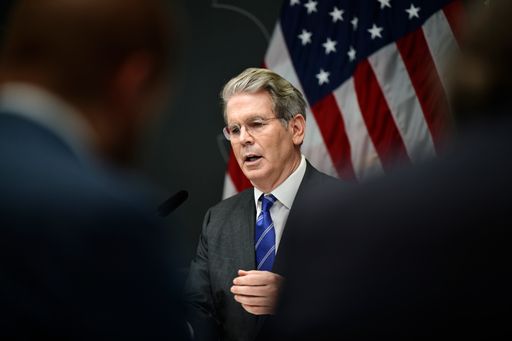Washington DC — The White House has once again reiterated that it was US President Donald Trump who brokered a truce between India and Pakistan during their unprecedented clashes in May that saw both nuclear-armed rivals trading drone, missile, artillery and air strikes for over four days.
"I think he is proud of all the peace deals he has been able to achieve... For India and Pakistan, he used trade in a very powerful way as leverage to bring that conflict to an end... He is very honoured to serve as the President of the United States and to restore peace around the world," White House Press Secretary Karoline Leavitt told reporters on Tuesday.
Leavitt claimed Trump resolved "seven global conflicts in seven months", suggesting the India-Pakistan fighting risked nuclear escalation.
"… We've seen it with the end of the conflict between India and Pakistan, which could have resulted in a nuclear war if we had not had a President who believed in the strength and the leverage that comes with the job of being the President of the United States of America," she added.
The South Asian rivals fought an intense conflict — after an attack in India-administered Kashmir that killed 26 people, mostly Hindu tourists — that left more than 70 people dead on both sides before Trump announced a ceasefire between India and Pakistan.
India accused Pakistan of backing the attackers. Islamabad denied the charge and called for an independent investigation.
In June, Pakistan formally recommended Trump for the 2026 Nobel Peace Prize, citing his role in defusing tensions between Islamabad and New Delhi and offering to mediate Kashmir dispute between the two rivals.
Indian Prime Minister Narendra Modi, however, denies that any world leader pushed it to stop fighting Pakistan.
"No world leader asked us to stop the operation," Modi told parliament during a recent debate.

Sanctions on India
Meanwhile, Leavitt told journalists that Trump is working hard to end the Russia-Ukraine war by taking several measures, including "sanctions on India."
"The President has put tremendous public pressure to bring this war to a close. He has taken actions as you seen sanctions on India and other actions as well… The President wants to move forward and bring war to an end as quickly as possible," she said.
Trump and his aides have accused India of bankrolling Russia's war in Ukraine.
Trump cited India's Russian crude imports when imposing an additional 25 percent tariff on Indian imports, effective August 28.
A new tariff could hike rates on some Indian goods to 50 percent, potentially halting nearly $87 billion in US imports from India.
On Monday, White House trade adviser Peter Navarro claimed that India's purchases of Russian crude were funding Moscow's war in Ukraine, adding that New Delhi was "now cozying up to both Russia and China."
"If India wants to be treated as a strategic partner of the US, it needs to start acting like one," Navarro wrote in an opinion piece published in the Financial Times on Monday with title "India’s oil lobby is funding Putin’s war machine — that has to stop".
"This surge has not been driven by domestic oil consumption needs. Rather, what really drives this trade is profiteering by India's Big Oil lobby," Navarro added. "In effect, India acts as a global clearinghouse for Russian oil, converting embargoed crude into high-value exports while giving Moscow the dollars it needs."
On Tuesday, US Treasury Secretary Scott Bessent accused India of profiteering from its sharply increased purchases of Russian oil during the war in Ukraine, saying Washington viewed the situation as unacceptable.
Bessent told CNBC in an interview that Russian oil now accounted for 42 percent of India's total oil purchases, up from under 1 percent before the war, and contrasted that with longtime buyer China, whose Russian oil purchases had increased to 16 percent from 13 percent.
"India is just profiteering. They are reselling," Bessent said. "What I would call Indian arbitrage - buying cheap Russian oil, reselling it as product has just sprung up during the war - which is unacceptable," he said.
India says it is being unfairly targeted for buying discounted Russian oil, while the US and European Union continue to trade with Russia.
"Where the US is concerned, it continues to import from Russia uranium hexafluoride for its nuclear industry, palladium for its EV industry, fertilisers as well as chemicals," the Indian Foreign Ministry stated in a recent statement.




















